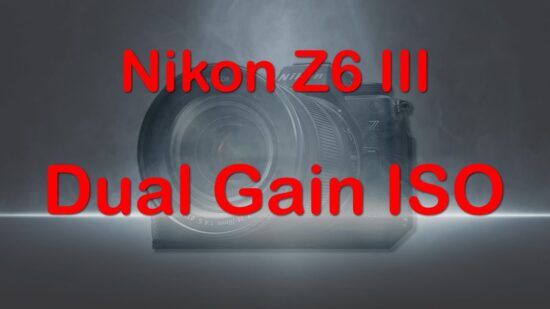
Long-time [NR] reader Horshack published another video on how Dual Gain ISO works on the Z6 III and other cameras as a stepping stone to a potential video about the DR and noise impact of partially/fully stacked sensors:
I’ve published a video explaining what Dual Gain ISO is, why it’s important, how to find the dual gain ISO level for your camera (using the Nikon Z6 III as an example), strategies for taking advantage of it, how it affects N-Log, and what the future holds for possible improvements. Although this video uses the Nikon Z6 III as an example, the concept applies to all cameras with dual gain ISO sensors, including other cameras from Nikon, Canon, Sony, etc…
To help make this technical subject easier to understand I use analogies and simplifications to the underlying mechanisms involved in dual gain ISO. If you’d like to dive deeper and gain (ahem) an even greater understanding of how sensors implement dual gain ISO I suggest reading the Aptina Dynamic Response Whitepaper on the subject, which Bill Claff hosts on his PhotonsToPhotos site:
https://www.photonstophotos.net/Aptina/DR-Pix_WhitePaper.pdf
Chapters in the video:
- 0:00 What is Dual Gain ISO?
- 2:44 How to find Dual Gain ISO level
- 5:46 ISO doesn’t cause noise
- 6:40 Dual ISO shooting strategy
- 7:48 N-Log and Dual Gain ISO
- 8:22 Future: Dual ISO readout
Nikon Z6 III vs. Nikon Z6 dynamic range and high ISO comparison
Here are a few more Nikon Z6 III vs. Nikon Z6 dynamic range videos and comparisons






